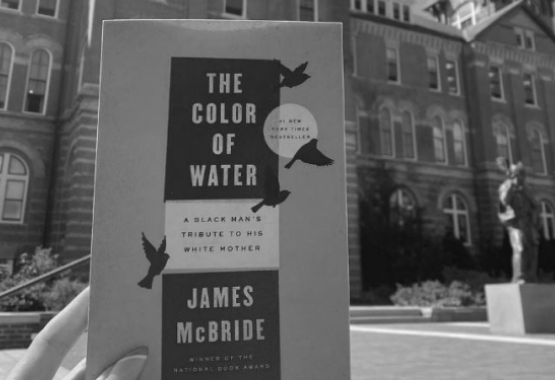For years, Conversatio has been the foundational shared learning experience for every student at Saint Anselm College (SAC). Many pass through this class solely for the core requirement, while others strongly resonate with the content of the course, but it is indisputable that Conversatio provides Saint Anselm scholars with unique learning and life experiences; Conversatio is the backbone of the SAC curriculum. Recently, among many other additions and improvements to the curriculum, the Faculty Senate has proposed a revised version of Conversatio, “Pathways and Perspectives”. Could this new course be a pathway for a new era at Saint Anselm, or will the absence of Conversatio diminish the SAC education? On Thursday, November 21, The Crier spoke with the chair of the Faculty Senate, Dr. Sheoepner Torres, on the details of Pathways and Perspectives and what it could bring to the Saint Anselm community.
As of 2014, all Saint Anselm students are required to take Conversatio during their freshman year. This course is the only full-year core requirement for SAC students, which they take with the same group of their peers both semesters, serving as an opportunity for new students to connect and build relationships. Conversatio is rooted in the Benedictine vow to be faithful in a way of life within community, and aims to confront students with questions of value, moral choice, and the significance of human life. Conversatio I is guided by the question “Who are we as individuals, what is our responsibility within a community, and what is our relationship with the divine?”. Students take this course in the first semester of their freshman year, typically with their orientation groups. This section challenges students to contemplate fundamental questions about life, and also serves as an introduction to the Catholic, Benedictine tradition. The second section, Conversatio II, focuses on the role the liberal arts play in “the good life”, prompting students to examine examples of politics (and rhetoric), science, and art within history and their own lives.
Converasatio is an experience unique to Saint Anselm College that has served thousands of students throughout the years, but according to Dr. Sheopner Torres, the course could be on it’s way out; “We know from student and faculty feedback that changes needed to be made to meet the needs of students better”, she said. After all the buzz about Conversatio’s lacking areas, a committee of nine faculty members met in the spring and summer of 2024 to discuss what could be done. After much research and feedback, Pathways and Perspectives was developed. Similar to Conversatio, Pathways and Perspectives is structured as a year-long course where students remain in the same seminars for both semesters. Dr. Sheopner Torres told The Crier that this is because of good feedback on Conversatio from students, “We heard from many students that having that stability was incredibly helpful in the first year”; she also stated that this feedback is supported by research evidence. However, the main objective of the course differs from that of past first-year humanities courses. The guiding question for Pathways and Perspectives is “What local and global conditions influence the movement of individuals and communities, and how do they adapt to their environment?” The theme within the content of this course is, as Sheopner Torres put it, “Exploring different perspectives, pathways, and vocations to help students situate themselves in the world.
Regarding the structure of the course, Pathways and Perspectives looks very similar to Conversatio. The class will require students to meet once a week for guest speakers and lectures, twice a week for seminar meetings, and once a week for an enrichment hour where students are pushed to take advantage of opportunities at the Academic Resource Center. This structure aims to encourage students to become aware of and question the default positions of their lives while also affirming and improving their responsible action toward local, national, and global communities. The goals of the course seem to align strongly with the school’s emphasis on community service. Students will be assessed in Pathways and Perspectives through two essays, two oral presentations, class participation, and frequent seminar assignments that align with the readings.
After much consideration and hard work, the Faculty Senate was able to produce a draft of this program by the end of summer 2024. This draft was a syllabus of a one-semester shared learning experience, and a pilot was launched this fall to test what will provide the best experience possible for future freshman students and what will need to be cut or replaced. As of now, there are still wider revisions being made to the core curriculum and until these changes are finalized, the college is unsure when students will see a new first-year experience fully implemented.


